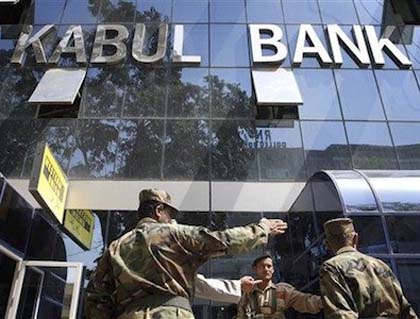WASHINGTON - Afghanistan has reached an agreement with the International Monetary Fund on majority of contentious issues, with only a few irritants left to seal the deal, Minister of Finance Hazrat Omar Zakhilwal said on Monday.
"We had substantial, result-oriented and comprehensive discussions with IMF and the World Bank," Zakhilwal told Pajhwok Afghan News before flying back to Afghanistan after attending the spring meetings of the IMF and the World Bank.
The talks with IMF were mainly around a program the Afghan government has been negotiating to resolve the Kabul Bank crisis. "We have actually agreed to most items with the IMF. It was done in an Afghan-driven way. Basically, we were ourselves proposing those measures for our own shake," he said.
The minister added: "I would say, we have agreed on 90 to 95 percent at this stage." He hoped the remaining difference of opinion would be resolved before he left for Kabul. On Sunday, Zakhilwal had a several hours long meeting with IMF officials on the text of the agreement. The IMF meeting, which went beyond the scheduled time, forced the minister to cancel several media interviews including with the CNN. "On the substance, there is (no sticking point). It is there on language, which we believe is not necessary. We believe the program should focus on the substance,” the minister said when asked about the issues that need to be resolved.
Zakhilwal said the bank would be eventually sold to a fit and proper buyer. "Recovery would not be just on a voluntary basis," he added. During his stay in Washington, the minister met officials at Department of Treasury and the State Department. He also met his Pakistani and Iranian counterparts.
The US he has agreed to provide $1 billion in aid through National Development Budget this year, which is a substantial increase from the existing $100 million to $150 million.
With his Pakistani counterpart, Zakhilwal discussed the Afghanistan-Pakistan Transit Trade Agreement and the difficulties Afghan traders faced. The ministers delegated their authority to their customs and revenue deputies to resolve the issues.

